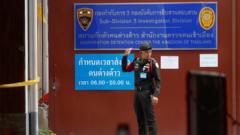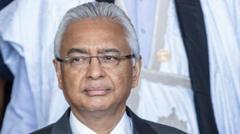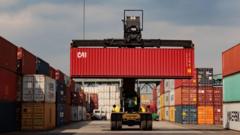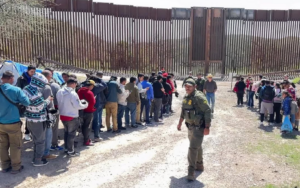The release of more than 250 foreign nationals from scam centers in Myanmar's Karen State highlights ongoing human trafficking issues, prompting diplomatic efforts and increased scrutiny from the Thai government.
Major Breakthrough in Combatting Human Trafficking: Hundreds Freed from Myanmar Scams

Major Breakthrough in Combatting Human Trafficking: Hundreds Freed from Myanmar Scams
Over 250 foreign workers rescued from illegal telecom fraud centers in Myanmar reveal the extent of human trafficking operations.
In a significant development, over 250 individuals from 20 different nationalities who had been trapped in telecom scam centers in Myanmar's Karen State have been freed by an ethnic armed group and safely transported to Thailand. The majority of these workers hail from African and Asian countries and are currently undergoing evaluation by the Thai army to determine the levels of human trafficking faced.
Recently, Thai Prime Minister Paetongtarn Shinawatra held discussions with Chinese President Xi Jinping, pledging to dismantle the burgeoning scam operations that have emerged along the Thai-Myanmar border. To this end, her administration has suspended the supply of electricity and fuel from Thailand and implemented stricter banking and visa regulations, aimed at curtailing the movement of scam operators and their victims.
Opposition politicians in Thailand have advocated for these preventive measures for the past two years, underscoring a growing recognition of the illicit activities taking place across the border. Many foreign workers are misled into these situations with promises of lucrative jobs or duped into thinking they would work in Thailand while being transported to Myanmar. The scammers tend to recruit individuals proficient in the languages of their target audiences, primarily English and Chinese.
Engaged in online crime, victims are coerced into participating in various fraudulent activities including so-called "pig butchering" scams, cryptocurrency fraud, money laundering, and illegal gambling. While some go along willingly, others face dire consequences, enduring abuse and torture until their families pay exorbitant ransoms for their release.
The Democratic Karen Benevolent Army (DKBA), an armed faction controlling parts of Karen State, was responsible for the release, which raises concerns about their prior tolerance towards the scam operations prevalent in the region. The ineffectiveness of the Myanmar government since its independence in 1948 has led to a power vacuum allowing these groups to operate without accountability.
On a related note, Thailand's Department of Special Investigation has sought arrest warrants for three leaders of another armed group, the Karen National Army, including a notorious warlord believed to have links to illicit funding and the promotion of these scams through developments like Shwe Kokko. Despite claims of eradicating scams and enforced labor in Shwe Kokko, eyewitness accounts suggest the continued operation of fraudulent enterprises.
In light of growing pressure from Thailand and China, both the DKBA and the implicated warlord have pledged to expel scam operations from their territories. The handover of the released workers, consisting of 221 men and 39 women from diverse nations such as Ethiopia, Kenya, and Pakistan, was coordinated directly between the DKBA commander and a Thai member of parliament.



















